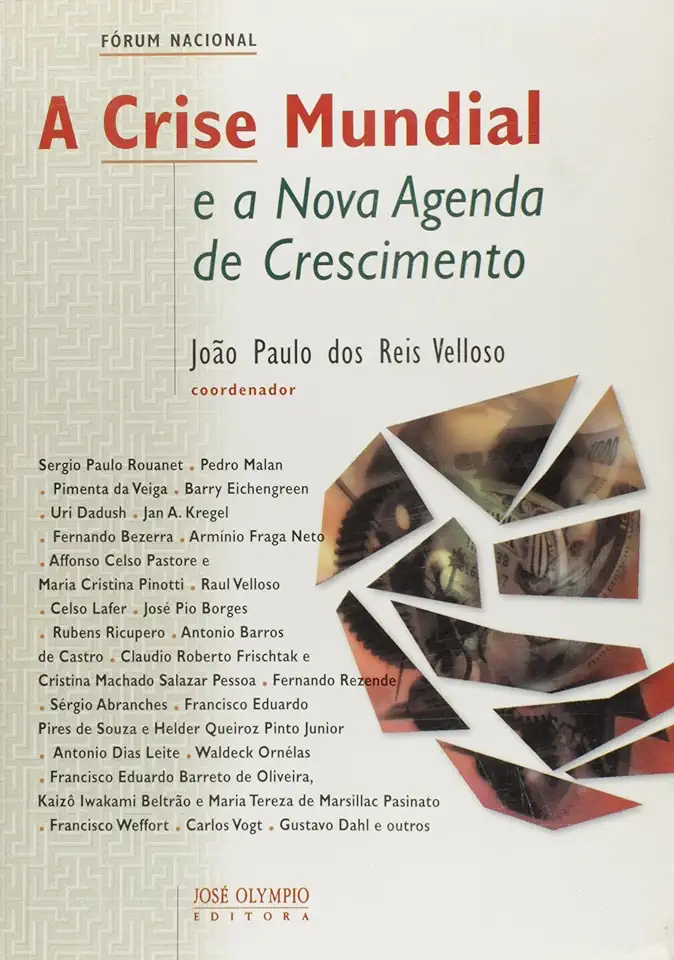
The Global Crisis and the New Growth Agenda - João Paulo dos Reis Velloso
The Global Crisis and the New Growth Agenda
By João Paulo dos Reis Velloso
Introduction
In "The Global Crisis and the New Growth Agenda," João Paulo dos Reis Velloso offers a comprehensive analysis of the global economic crisis and proposes a new framework for economic growth. Velloso argues that the crisis was caused by a combination of factors, including excessive debt, financial instability, and global imbalances. He also argues that the traditional approach to economic growth, based on increasing consumption and investment, is no longer sustainable.
The Causes of the Global Crisis
Velloso identifies several key factors that contributed to the global crisis. These include:
- Excessive debt: The global economy was built on a foundation of excessive debt. This debt was held by governments, businesses, and households. When the crisis hit, many of these debtors were unable to repay their debts, which led to a wave of defaults and bankruptcies.
- Financial instability: The global financial system was also unstable. This instability was caused by a number of factors, including the deregulation of the financial industry, the rise of complex financial instruments, and the lack of oversight of the financial system.
- Global imbalances: The global economy was also characterized by large imbalances. These imbalances included a large trade deficit in the United States, a large trade surplus in China, and a large current account deficit in the eurozone. These imbalances made the global economy vulnerable to shocks.
The New Growth Agenda
Velloso argues that the traditional approach to economic growth, based on increasing consumption and investment, is no longer sustainable. He proposes a new growth agenda that is based on the following principles:
- Sustainability: The new growth agenda must be sustainable. This means that it must not damage the environment or deplete natural resources.
- Inclusiveness: The new growth agenda must be inclusive. This means that it must benefit all segments of society, not just the wealthy.
- Innovation: The new growth agenda must be based on innovation. This means that it must encourage new ideas and new technologies.
Velloso believes that the new growth agenda can help to create a more prosperous and sustainable global economy.
Conclusion
"The Global Crisis and the New Growth Agenda" is a must-read for anyone who wants to understand the global economic crisis and its implications for the future of the global economy. Velloso offers a clear and concise analysis of the crisis and proposes a new framework for economic growth that is both sustainable and inclusive. This book is a valuable resource for policymakers, business leaders, and anyone else who is interested in the future of the global economy.
Why You Should Buy This Book
"The Global Crisis and the New Growth Agenda" is a must-read for anyone who wants to understand the global economic crisis and its implications for the future of the global economy. Here are a few reasons why you should buy this book:
- It is a comprehensive analysis of the global economic crisis. Velloso provides a detailed and well-researched analysis of the causes of the crisis and its impact on the global economy.
- It proposes a new framework for economic growth. Velloso's new growth agenda is based on the principles of sustainability, inclusiveness, and innovation. This agenda offers a roadmap for creating a more prosperous and sustainable global economy.
- It is written by a leading expert on the global economy. Velloso is a former Minister of Finance of Brazil and a former Executive Director of the International Monetary Fund. He has a deep understanding of the global economy and its challenges.
"The Global Crisis and the New Growth Agenda" is a valuable resource for policymakers, business leaders, and anyone else who is interested in the future of the global economy.
Enjoyed the summary? Discover all the details and take your reading to the next level — [click here to view the book on Amazon!]